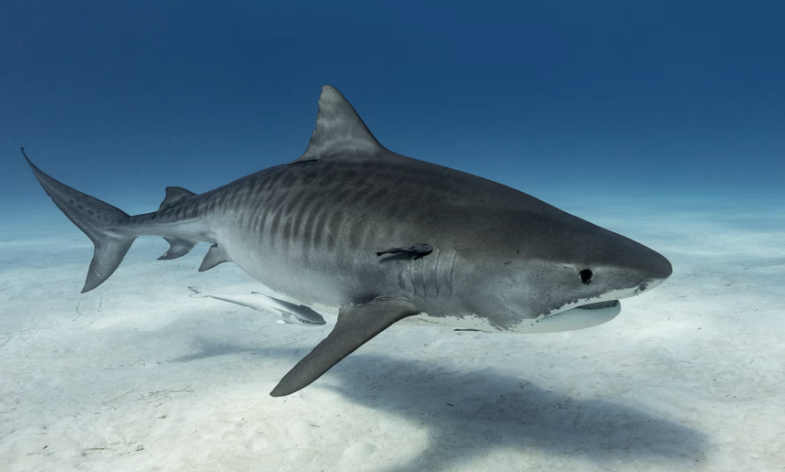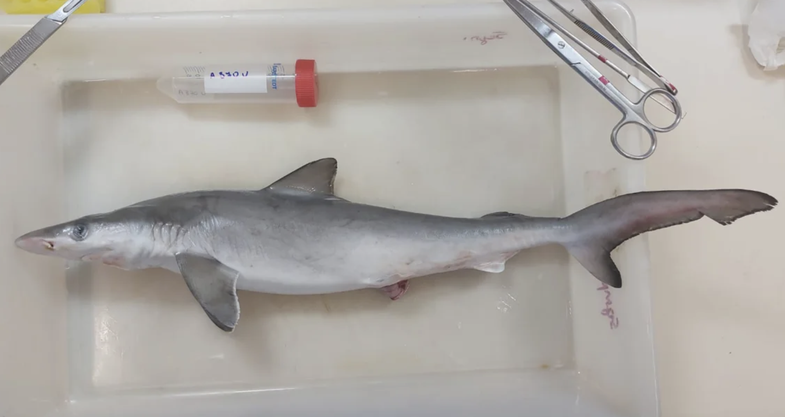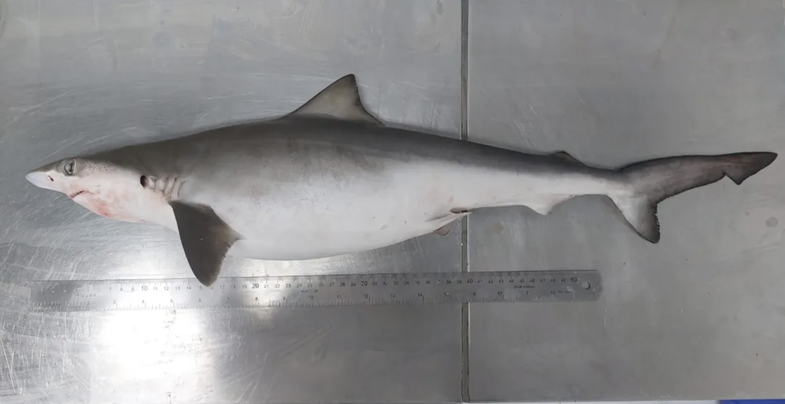
Sharks living off the coast of Brazil have tested positive for cocaine, according to a new study. This is the first time studies have come to such a conclusion. Scientists tested 13 sharks in Brazilian waters near Rio de Janeiro and found traces of cocaine in their muscles and liver. The result was the same for all 13 sharks, according to the studies of the "Oswaldo Cruz" foundation.

The levels of cocaine were 3 times higher in the muscles, compared to the presence of the narcotic substance in the liver. Female sharks had a higher level of cocaine in their bodies than males.
Let's move on to the question that bothers us all: "How is it possible?"
In this case, there is a human finger.
"Cocaine pollutes the sea because of the wastewater discharged by cocaine users, as well as by illegal laboratories that produce/mix cocaine," said Enrico Mendes Saggioro, co-author of this study.
Cocaine use has increased massively worldwide in recent decades. About 22% of users live in South America, and Brazil ranks second in the region for the highest use of the drug regionally. Increased consumption and poor sewage treatment infrastructure have also caused sharks to be exposed to cocaine. Previous research suggested that cocaine spilled into the sea by drug traffickers could be responsible for the results, but according to Mendes Saggioro, this was not the case.

It is still not clear whether cocaine harms the health of sharks, the experts explained, but previous studies have shown that the drug harms other species such as fish and mussels.
"It is possible, although not yet proven, that exposure of sharks to cocaine has harmful physiological effects," the researchers said.
In addition, they added that it is not possible to prove any effect on the behavior of sharks, but cocaine is known to increase hyperactive and erratic behavior in other animals, according to various observations that have been made.
The potential effects on human health are also difficult to determine, as cocaine has already entered the food chain because sharks are consumed by humans in Brazil and many other countries.
According to Enrico Mendes Saggioro, studies will also be carried out in migratory fish, such as mullet, to verify if the migration of fish affects the accumulation of cocaine.
In a 2021 study, researchers concluded that brown trout can become addicted to the illegal drug methamphetamine when it accumulates in waterways.
"Fish are sensitive to the negative effects of many neurologically active drugs, ranging from alcohol to cocaine, and can develop addiction to these substances because of the dopamine they receive. This is similar to humans," said the lead author. of the study, Pavel Horky, expert in the field of science.





